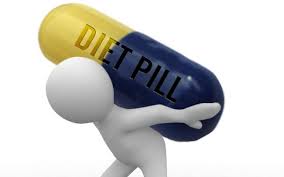What do you mean, “Who cares?”If you’ve read some version of the following once, you’ve probably read some version of it a half a dozen times.“The reason so many Americans can’t lose weight is that we’re a culture obsessed with immediate gratification, and we don’t have the patience to commit ourselves to physical fitness regimens and to resolutely follow weight-reduction diet programs. We continue to hold out for a simple pill that will do the trick and allow us to shed pounds effortlessly.” http://www.ridemonkey.com/forums/showthread.php?t=181883&p=3947817#post3947817
It’s hard for a lot of us to not nod our heads at that as sad but true, but in reality, it may not actually be the case. Indeed, the pharmaceutical industry wishes it were true and wonders why it isn’t.
Andrew Pollack, writing for the New York Times, noted that pharmaceutical weight-loss drugs get a much smaller slice of the overall weight-loss market, compared to gym memberships, exercise equipment, diet books and so forth. Of the some 70-odd million Americans who are obese, only about 2 million take weight-loss drugs, and even then, mostly simple appetite suppressors. No weight-reduction drug has ever managed to ring up $1 billion in sales in one year, and that’s not nearly as huge a sum as it sounds given a market wherein cholesterol-reducing Lipitor, for example, hit the $13 billion-a-year mark before its patent expired. http://www.gymchat.com/messageboards/gym-chat-daily-thread/139783-gross-strange-latest-weight-loss-diet-placebo-effect-
What seems to have triggered Pollack’s interest in this phenomenon was Osymia. Introduced last September, Osymia was the first prescription drug for weight loss to be released with the approval of the FDA in 13 years. Today, after spending $45 million to promote the drug, its manufacturer, Vivus, can barely give the stuff away. A second weight-loss prescription drug that just hit the market, Belviq, is also not expected to send profits soaring. Pollack’s article undertakes to explain why diet drugs inexplicably sell poorly.
(Not to be flippant, but it might have helped sales if they had given the products names that people could actually pronounce. A person is less inclined to ask a pharmacist for a product by name if he or she stands a chance of sounding like somebody with a speech impediment in the process. It might also be beneficial to choose a name that at least conjures up some passing association with the condition treated, such as Slimmeez, or Leenex.)
Pollack enumerated an array of reasons for diet drugs’ lack of success.
They work too slowly and we soon lose patience with them; 75 percent of us bail out before three months are up, and 90 percent by six months, often because on average, we’ve lost less than 4 percent of our starting weight by then. http://victoriavedpages.activeboard.com/t37125762/depression/?page=last#lastPostAnchor
They’re not cheap, and they’re not covered by Medicare Part D. A lot of overweight people, if they had the $5 a day to spend on a diet drug, could just spend it on healthier, less fatty food to begin with.
The Quick Fix mentality has fallen out of favor lately, and even though the AMA just designated obesity as a disease, the prevailing attitude is that you attack obesity by changing your lifestyle, not by popping a pill.
Phen-Fen phobia. The last time an apparently effective weight-loss drug hit the market, it wound up giving some people heart trouble. That’s all that a lot of potential customers need to know about the subject.
Those are all very plausible factors in explaining our resistance to prescription weight-control meds. But there might be a more fundamental underlying reason. It may be that we’ve just come to distrust Big Pharma, for a whole host of absolutely sensible reasons, not the least of which is that you sometimes have to almost threaten the industry with a baseball bat just to get it to tell the truth and do right by its customers. It has too often made medicinal promises that its products failed to keep. It has a tendency to prioritize the best interests of its stockholders and executives over those of the general public.
And this is unfortunate, because the fact is that we’re still sucker bait for the notion of something we can take to melt our pounds off, as is evidenced by the millions we toss down the drain buying weight-erasing capsules and powders and pills from a nutritional supplements industry which is far less encumbered by federal safety-and-effectiveness requirements. Perhaps that’s the key. “Supplements” fly off the shelves because we view them as neither produced by Big Business, which the left regards as predatory, nor regulated by Big Government, which the right loathes to its core.
And we may come to regret this attitude, because Big Pharma, for better or worse, is the only industry we’ve got that is capable of producing demonstrably safe and effective chemical compounds of genuine medicinal value. It would be a shame if we were to now be ensnared in a kind of Boy Who Cried Wolf situation, where even if the drug biggies were to come up with a magic wand-like pill or capsule or fluid that really kept the body’s weight within healthy limits, we wouldn’t believe it. Especially those of us who could use it the most, but have been the most repeatedly disappointed and demoralized by weight-loss drugs in the past. http://herbalhealthhealing.activeboard.com/t38881930/back-pain-exercise-easy-ways-to-keep-your-back-fit/?
If our weight-loss-drug-resistance continues, the pharmaceuticals may just decide it’s a dead end, and give up the search for that miracle fat-evaporating drug. And then we’d be left with only physical exercise and sensible diets as the way to slimness. Yikes.
